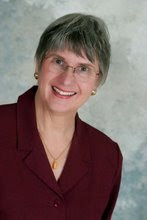For 59 years I have belonged to the Lutheran Deaconess Conference, since my consecration in 1960. We gather as a community once every summer. In between we gather in area conferences. I belong to the Minnesota/Wisconsin Area which clusters around the Twin Cities area.
Last Saturday they gathered as they usually do once a month. I can't always attend since I live in Iowa--Northern Iowa. That's why I'm included. We're only 30 miles from the Minnesota border and in the Rochester, MN, television viewing area (quite frankly I'd rather see the Des Moines news) But I digress.
The Area Conference Saturday began with devotions and about 1/2 hour of simply singing favorite hymns. The meeting would go from 10:00 a.m. until 2 in the afternoon. I had joined by conference phone call. Another woman, Brenda, also joined by phone from Eastern North Dakota. Four States! As the group in Minneapolis chose their favorite hymns I soon realized they had with them "Gather" and "With One Voice." I had the "Evangelical Lutheran Worship" (ELW or the "Cranberry Hymnal") Three Hymnals! What could have been an absolute mismatch not just of voices but of books (We had to call out hymn numbers from one book and look them up in the index in another book) and states,--not to mention the difficulty of some of us on the phone--turned out to be what it always is when deaconesses gather: women making beautiful music together, singing of faith and service in Christ.
We are theologians and with that solid base, we are also social worker, parish worker, nurse, teacher, professor, counselor, chaplain and more. We have a commitment to faith and service to Christ and also to one another--for a lifetime. That's what it means to belong to a community!
The meeting went on with each sharing some of our work, our challenges, our joys, our questions, our lives, our prayer concerns. We talked and we prayed. We also share leadership, a circle of leaders, collaborative, not hierarchical. We care about each other in the midst of our diversity. We can count on that always.
Diaconal ministry is servanthood ministry, no matter where we serve, whatever our gifts. The words of our final hymn have stayed with me all week:
When the poor ones who have nothing, still are giving;
when the thirsty pass the cup, water to share;
when the wounded offer others strength and healing;
we see God, here by our side, walking our way;
When compassion gives the suffering consolation;
when expecting brings to birth hope that was lost;
when we choose love, not the hatred all around us,
we see God, here by our side, walking our way.
When our spirits, like a chalice, brim with gladness;
when our voices, full and clear, sing out the truth;
when our longings, free from envy, seek the humble,
we see God, here by our side,walking our way.
When the goodness poured from heaven fills our dwellings;
when the nations work to change war into peace;
when the stranger is accepted as our neighbor;
we see God, here by our side, walking our way;
we see God, here by our side, walking our way.
Picture from our entire Lutheran Deaconess Conference meeting Summer 2019





